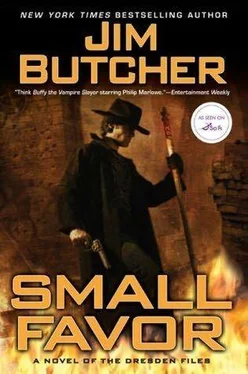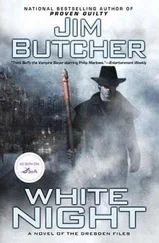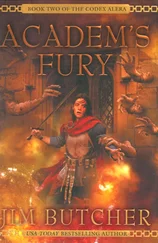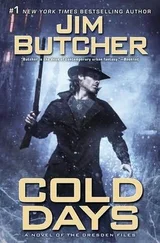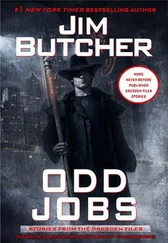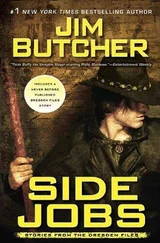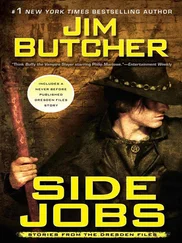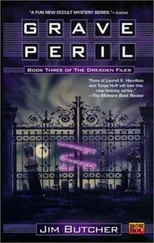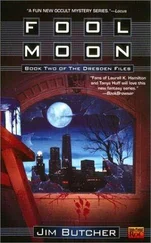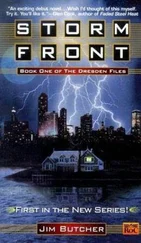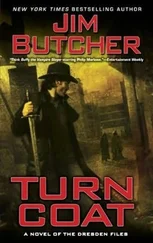JIM BUTCHER
SMALL FAVOR
(The Dresden Files - 10)
A NOVEL OF THE DRESDEN FILES
Acknowledgments
Many folks deserve thanks as usual, particularly my family, who has to put up with my insanity during deadline crunches; my agent, Jenn, who has to make excuses to my editor when I’m late; and my editor, Anne, who in turn has to make excuses for me to her bosses; plus the Beta Asylum, who have the ongoing task of pointing out warts on my babies. The lunatics.
This time I have to add new folks to the list-the local and visiting players at NERO Central, who were good enough to step around me during various roleplay and combat actions, while I finished off the last few chapters of Small Favor in the corner of the tavern.
W inter came early that year; it should have been a tip-off.
A snowball soared through the evening air and smacked into my apprentice’s mouth. Since she was muttering a mantra-style chant when it hit her, she wound up with a mouthful of frozen cheer-which may or may not have been more startling for her than for most people, given how many metallic piercings were suddenly in direct contact with the snow.
Molly Carpenter sputtered, spitting snow, and a round of hooting laughter went up from the children gathered around her. Tall, blond, and athletic, dressed in jeans and a heavy winter coat, she looked natural in the snowy setting, her cheeks and nose turning red with the cold.
“Concentration, Molly!” I called. I carefully kept any laughter I might have wanted to indulge in from my voice. “You’ve got to concentrate! Again!”
The children, her younger brothers and sisters, immediately began packing fresh ammunition to hurl at her. The backyard of the Carpenter house was already thoroughly chewed up from an evening of winter warfare, and two low “fortress” walls faced each other across ten yards of open lawn. Molly stood between them, shivering, and gave me an impatient look.
“This can’t possibly be real training,” she said, her voice quavering with cold. “You’re just doing this for your own sick amusement, Harry.”
I beamed at her and accepted a freshly made snowball from little Hope, who had apparently appointed herself my squire. I thanked the small girl gravely, and bounced the snowball on my palm a few times. “Nonsense,” I said. “This is wonderful practice. Did you think you were going to start off bouncing bullets?”
Molly gave me an exasperated look. Then she took a deep breath, bowed her head again, and lifted her left hand, her fingers spread wide. She began muttering again, and I felt the subtle shift of energies moving as she began drawing magic up around her in an almost solid barrier, a shield that rose between her and the incipient missile storm.
“Ready!” I called out. “Aim!”
Every single person there, including myself, threw before I got to the end of aim , and snowballs sped through the air, flung by children ranging from the eldest, Daniel, who was seventeen, down to the youngest, little Harry, who wasn’t yet big enough to have much of a throwing arm, but who didn’t let that stop him from making the largest snowball he could lift.
Snowballs pelted my apprentice’s shield, and it stopped the first two, the frozen missiles exploding into puffs of fresh powder. The rest of them, though, went right on through Molly’s defenses, and she was splattered with several pounds of snow. Little Harry ran up to her and threw last, with both hands, and shrieked merry triumph as his bread-loaf-sized snowball splattered all over Molly’s stomach.
“Fire!” I barked belatedly.
Molly fell onto her butt in the snow, sputtered some more, and burst out in a long belly laugh. Harry and Hope, the youngest of the children, promptly jumped on top of her, and from there the lesson in defensive magic devolved into the Carpenter children’s longstanding tradition of attempting to shovel as much snow as possible down the necks of one another’s coats. I grinned and stood there watching them, and a moment later found the children’s mother standing beside me.
Molly took after Charity Carpenter, who had passed her coloring and build on to her daughter. Charity and I haven’t always seen eye-to-eye-well, in point of fact, we’ve hardly ever seen eye-to-eye-but tonight she was smiling at the children’s antics.
“Good evening, Mister Dresden,” she murmured.
“Charity,” I replied amiably. “This happen a lot?”
“Almost always, during the first real snowfall of the year,” she said. “Generally, though, it’s closer to Christmas than Halloween.”
I watched the children romping. Though Molly was growing quickly, in a number of senses, she reverted to childhood easily enough here, and it did me good to see it.
I sensed Charity’s unusually intense regard and glanced at her, lifting an eyebrow in question.
“You never had a snowball fight with family,” she said quietly, “did you?”
I shook my head and turned my attention back to the kids. “No family to have the fight with,” I said. “Sometimes the kids would try, at school, but the teachers wouldn’t let it happen. And a lot of times the other kids did it to be mean, instead of to have fun. That changes things.”
Charity nodded, and also looked back at the kids. “My daughter. How is her training progressing?”
“Well, I think,” I said. “Her talents don’t lie anywhere close to the same areas mine do. And she’s never going to be much of a combat wizard.”
Charity frowned. “Why do you say that? Do you think she isn’t strong enough?”
“Strength has nothing to do with it. But her greatest talents make her unsuited for it in some ways.”
“I don’t understand.”
“Well, she’s good with subtle things. Delicate things. Her ability at handling fine, sensitive magic is outstanding, and increasing all the time. But that same sensitivity means that she has problems handling the psychic stresses of real combat. It also makes the gross physical stuff a real challenge for her.”
“Like stopping snowballs?” Charity asked.
“Snowballs are good practice,” I said. “Nothing gets hurt but her pride.”
Charity nodded, frowning. “But you didn’t learn with snowballs, did you.”
The memory of my first shielding lesson under Justin DuMorne wasn’t a particularly sentimental one. “Baseballs.”
“Merciful God,” Charity said, shaking her head. “How old were you?”
“Thirteen.” I shrugged a shoulder. “Pain’s a good motivator. I learned fast.”
“But you aren’t trying to teach my daughter the same way,” Charity said.
“There’s no rush,” I said.
The noise from the children stopped, dropping to furtive whispers, and I winked at Charity. She glanced from the children to me, amusement evident in her face. Not five seconds later Molly shouted, “Now!” and multiple snowballs came zipping toward me.
I lifted my left hand, focusing my will, my magic, and drew it into the shape of a broad, flat disk in front of me. It wasn’t a good enough shield to stop bullets, or even well-thrown baseballs, but for snowballs it was just fine. They shattered to powder on my shield, revealing it in little flashes of pale blue light as a circular plane of force centered on the outspread fingers of my extended left hand.
The children laughed as they cried out their disapproval. I shouted, “Hah!” and lifted a triumphant fist.
Then Charity, standing behind me, dumped a double handful of snow down the neck of my coat.
I yelped as the cold ate my spinal cord, jumped up out of my tracks, and danced around trying to shake the snow out from under my clothes. The children cheered their mother on and began flinging snowballs at more or less random targets, and in all the excitement and frivolity I didn’t realize that we were under attack until the lights went out.
Читать дальше
